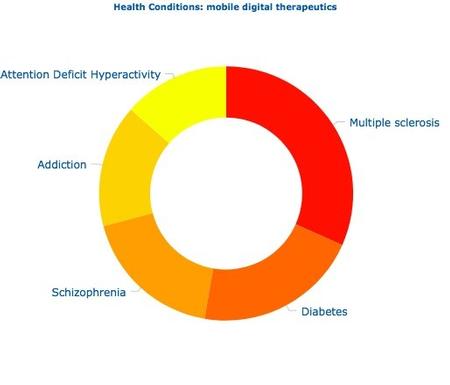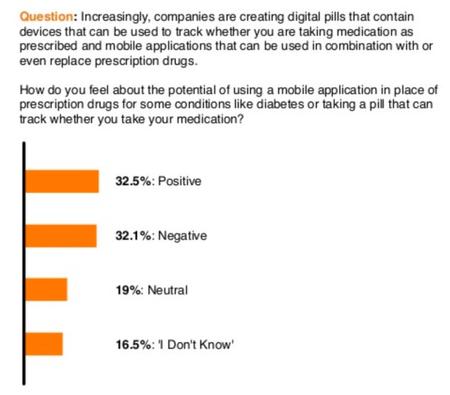Could the Facebook Scandal Slow Down Digital Healthcare?
24 Jul. 2018 | Comments (0)
If global health is being reshaped by technologies such as wearables, artificial intelligence and blockchain, then data—and lots of it—is fueling this transformation. But patient fears about privacy and misuse of data, potentially influenced by the Facebook data breach, threatens to slow the development and uptake of digital health innovations.
In some respects, these fears are well founded. While the use and distribution of certain types of health information is protected by existing regulations and laws, the vast majority of data flowing through mobile apps and devices is not.
Over the last five years, numerous digital health startups, technology firms, and others have developed a robust data-device infrastructure. It features wearables, mobile applications and other innovations dedicated to collecting, processing, and delivering a diverse array of data on health and performance.
Today, this data-device infrastructure is underpinning a new subsector of the digital health industry: digital therapeutics. These are defined as technologies such as prescription drugs with embedded sensors that can track whether patients are taking their medication and mobile health applications that could potentially replace drugs.
While digital therapeutics are not new, they have begun to gain traction. According to automated content analysis research conducted by my firm, digital therapeutics was among the top five most popular trends referenced in the digital health online literature during Q1 2018. This research also revealed how digital therapeutics are being used to help manage a range of conditions, including ADHD, addiction and multiple sclerosis.
Chart 1: Health Conditions Digital Therapeutics Are Being Used to Treat

Source: Enspektos, LLC, DigiHealth Informer Platform, Q1 2018 Data
Digital therapeutics have the potential to do a lot of good, but patients are concerned about how digital therapeutics’ makers are collecting and using their data.
According to a survey of digitally active patients we conducted in partnership with Savvy Cooperative, a patient-owned coop focused on delivering consumer insights, more than one-third of respondents are worried that digital therapeutics could be used to track their behavior in ways they find invasive, or that data will be sold to third parties without their consent. This perception could be fueled by the Facebook data-sharing scandal.
Chart 2: Patients Have Mixed Feelings About Digital Therapeutics

Data Source: Savvy Cooperative, Patient Survey, March – April, 2018, N: 238
The potential impact of the Facebook scandal on patient perceptions of digital therapeutics has important implications for companies collecting and using health data. Most importantly, while the vast majority of companies using this data are well-intentioned and careful, a few major bad actors mishandling large amounts of patient data could catapult the digital health industry into its own Facebook moment.
If this were to happen, it would only be a matter of time before regulators and policymakers took steps to place significant restrictions on the types of health data that can be collected and shared, which could put a significant damper on digital health innovation. The question is whether innovators, health organizations and others are prepared for this scenario and taking steps to better manage the gathering and protection of a wider array of health information collected by digital devices, beyond those protected by existing laws and regulations.
Blockchain to the rescue?
Against this backdrop of patient skepticism, blockchain is emerging as a possible solution. While there is still a lot of debate about whether and how this technology will play a role, blockchain technologies offer an elegant way to store health data more securely. Another use case is centered on allowing patients to have more control over their data by using blockchain technologies that enable third parties to receive permission to access and share this information. In many cases companies are developing economic incentives to encourage patient data sharing and ensure consumers can benefit financially from health data exchange.
There are several companies experimenting with the idea of using blockchain to incentivize and compensate patients. One example is a partnership between Insilico Medicine and the Bitfury Group examining whether patients would be willing to provide lab test data and photographs in exchange for cryptocurrency. The partners hope that patients will be able to earn a "basic income” from selling their private health data.
There are still many questions about whether the idea of providing patients with cryptoassets in exchange for health data will be attractive (and even if the market will value these cryptocurrencies appropriately), but the concept is intriguing, especially if it can incentivize health behavior change and improve adherence with medications.
Whether it’s a technology solution like blockchain or self-regulation by the industry, consumers need assurance that their data is safe and that they have control over its use. Without it, growth of the digital health is at risk.
This piece was originally published by Techonomy.
-
About the Author:Fard Johnmar
Fard Johnmar is a Senior Fellow of the Society for New Communications Research and Founder and President of Enspektos, a globally respected digital health innovation consultancy. He is a nearly 20-yea…




0 Comment Comment Policy